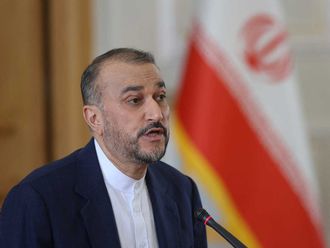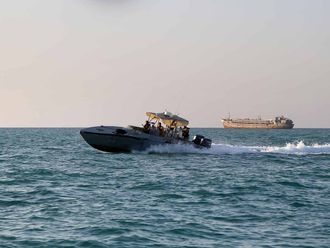
Cairo: An Egyptian court on Tuesday rejected as illegal a marine demarcation border agreement between Egypt and Saudi Arabia under which Cairo would surrender control over two strategic Red Sea islands to Riyadh.
The verdict by the administrative court challenges the foreign policy of President Abdul Fattah Al Sissi’s government which, together with the media, has zealously argued that the agreement would bring economic benefits for Egypt and that the islands are owned by Saudi Arabia, which merely placed them under Egyptian control in 1950 for protection.
The verdict by the administrative court, which rules on cases in which the government is involved, can be appealed.
There was no immediate comment from the Saudi or Egyptian governments on the court ruling. Egypt’s parliament, which is packed by government supporters, has yet to endorse the agreement.
In a brief verdict met with an eruption of applause and chants, judge Yahya Dakroury ruled that the two islands at the mouth of the Gulf of Aqaba remain under Egyptian sovereignty and banned “any changes on the two islands for the benefit of any foreign country.”
The uninhabited islands of Tiran and Sanafir control narrow shipping lanes leading north to the port cities of Eilat and Aqaba in Israel and Jordan respectively. The closure of those lanes in 1967 by then Egyptian President Jamal Abdul Nasser is chiefly blamed for the outbreak of the June 1967 Arab-Israeli war in which Egypt lost the Sinai Peninsula. It was returned to Egypt, together with the two islands, under its landmark 1979 peace treaty with Israel.
The Egyptian-Saudi demarcation agreement was announced in April during a high-profile visit to Cairo by the Saudi monarch, King Salman, when he announced a multi-billion dollar aid package for Egypt. That has given rise to allegations, rejected by the government, that the islands would be given to the Saudis as a pay-off.
Saudi Arabia has been a major financial backer to Egypt since Al Sissi, as defence minister, led the military’s 2013 ouster of the Islamist Mohammad Mursi, Egypt’s first freely-elected president.
Al Sissi has acknowledged that the demarcation negotiations were held in secrecy to avoid the unwanted media attention and opposition to the deal. “Please, I don’t want anyone to talk about this anymore,” he angrily said in April.
The agreement sparked the largest anti-government demonstrations since Al Sissi took office in June 2014. Authorities responded with a wave of mass arrests of protesters and activists. However, most of those arrested were acquitted, released on bail or convicted and fined.
“This is a very important step,” said Khalid Ali, a prominent rights lawyer and former presidential candidate who brought the case against the government over the deal. “I appeal to the Egyptian government ... to implement the court’s ruling. “This is the land of our ancestors” you must protect it, and those islands are Egyptian and will remain with Egypt forever,” he said.
Ali spoke as about two dozen supporters who had gathered outside the court chanted “bread, freedom, those islands are Egyptian,” a play on the most popular slogan of Egypt’s 2011 uprising — “bread, freedom and social justice” — that toppled the rule of Hosni Mubarak.












